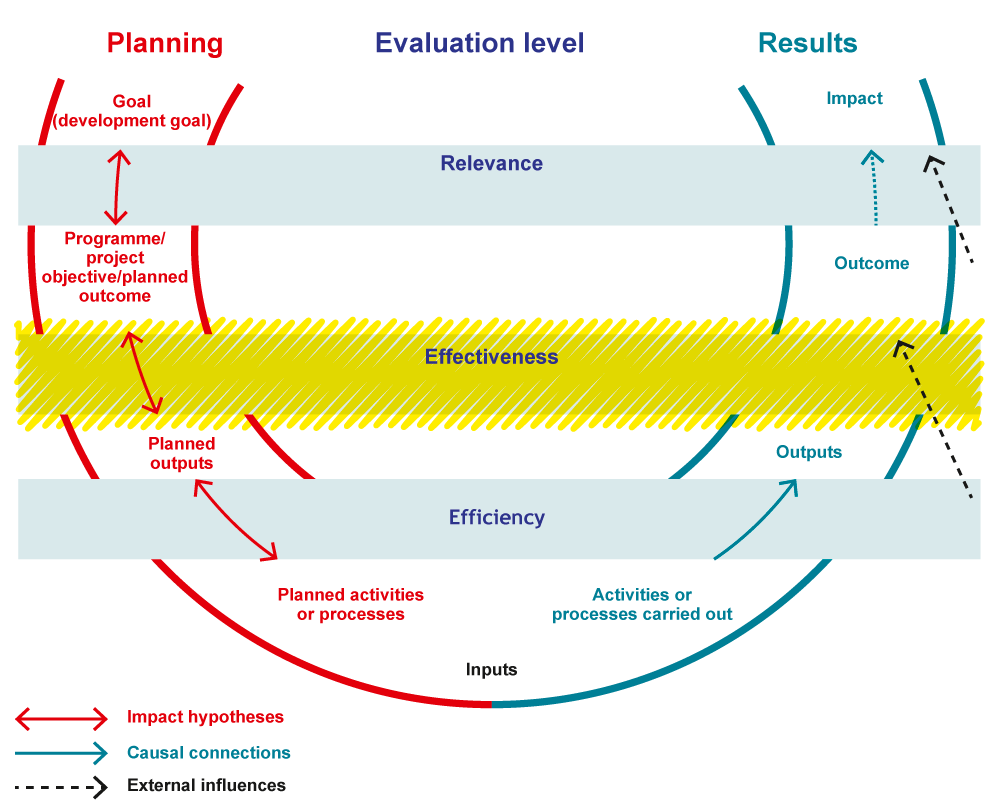The term ‘evaluation’ is used in both literature and practice to describe activities at different levels and with varying foci. According to the SDC/OECD glossary, the term ‘evaluation’ describes a systematic and objective assessment of a project, including its design, implementation and results. An evaluation is intended to pass judgment on a project’s relevance, the achievement of its development goals, and its effectiveness, impact and sustainability.
In these guidelines, the term ‘outcome and impact assessment’ is specifically used to mean the recording and appraisal of a project’s effectiveness. Therefore, impact assessment can be part of a comprehensive evaluation. Yet impact assessment can also be carried out separately or integrated into the overall project management.
Three-level planning and evaluation: an illustration

Efficiency
A measure of how economically resources/inputs (funds, expertise, time, etc.) are converted into results.
Source: OECD/DAC
Effectiveness
The extent to which the development intervention’s objectives were achieved, or are expected to be achieved, taking account of their relative importance.
Source: OECD/DAC
Relevance
The extent to which the objectives of a development intervention are consistent with beneficiaries’ requirements, country needs, global priorities, and partner and donor policies.
Source: OECD/DAC

